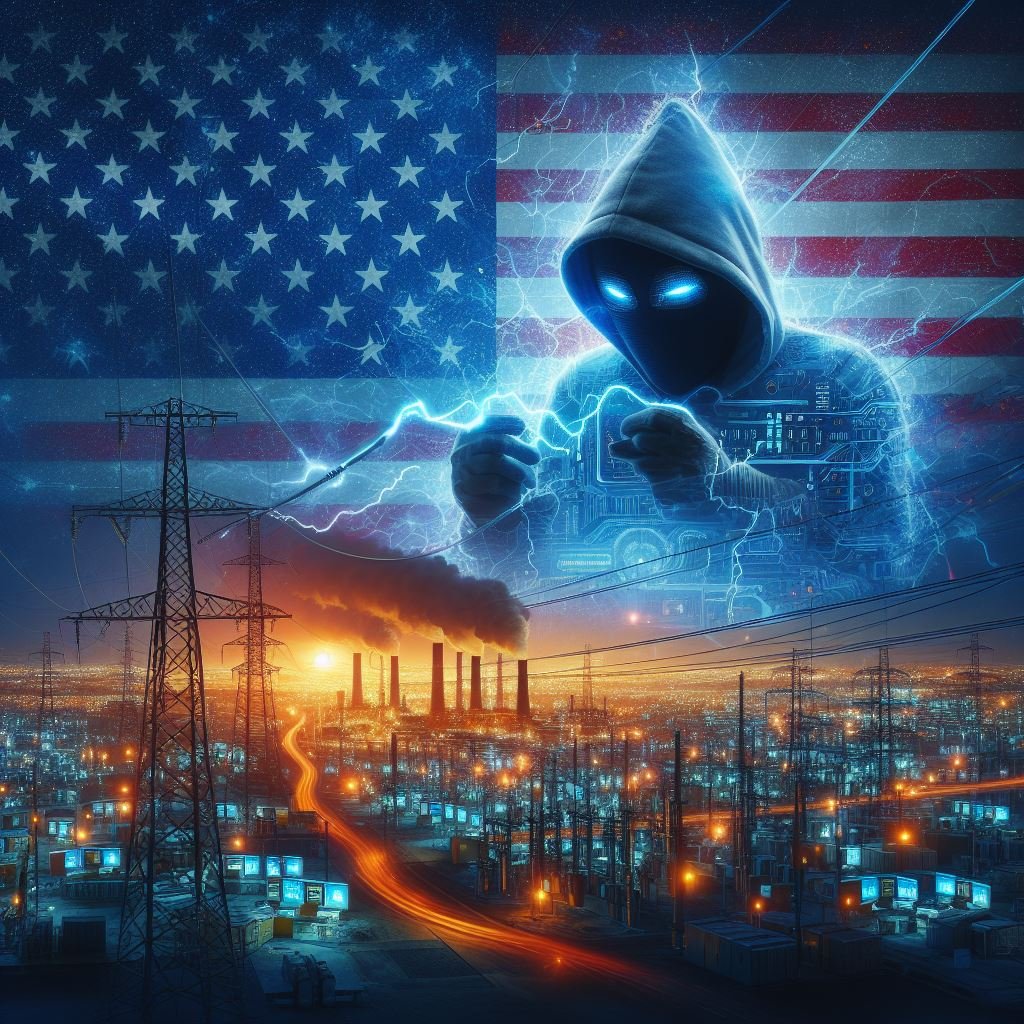Computerized control systems play a vital role in the energy supply of America, offering numerous advantages and benefits. From energy efficiency and strategy to optimal processing, these systems have been instrumental in advancing the nation’s energy sector.
However, as with any technology, there are risks associated with computerized controls systems. These risks, if not properly managed, can lead to catastrophic consequences for America’s energy supply, leaving the nation vulnerable to cyber attacks and other threats.
One major advantage of computerized controls systems in America’s energy supply is energy efficiency. These systems can optimize processes and minimize energy wastage, leading to significant savings, reducing costs and ultimately, benefiting both businesses and consumers. With computerized controls systems, businesses can identify areas where energy is being wasted and take steps to improve efficiency, thus reducing energy consumption over time.
Another advantage of computerized controls systems is their ability to execute strategies effectively. With strategic implementation of computerized systems, businesses can meet the changing energy demands of their customers and stay ahead of their competitors. These systems allow for real-time monitoring, analysis, and implementation of strategies for both immediate and long-term energy demands.
While there are numerous benefits to computerized control systems, there are also risks. The primary risk associated with these systems is the possibility of cyber attacks. Any disruption to the energy supply can cause significant harm to the nation and its economy. Therefore, it is crucial for businesses to establish effective protocols and safeguards to protect these systems from potential cyber threats.
US Energy Department Confirms Sunburst Hack:
- The US energy department confirmed that it was hit by the Sunburst hack, which is being described as the worst-ever hack on the US government. Although the department manages US nuclear weapons, the security of the arsenal was not compromised. The breach is part of a sophisticated, months-long campaign that also targeted other agencies, including the US treasury and commerce departments. Microsoft also discovered malicious software in its systems. Many suspect the Russian government is responsible, although it has denied any involvement. The full impact of this cyber-attack is still unfolding, and it could take years to fully comprehend its magnitude1.
MoveIt Breach Hits US Department of Energy:
- In June 2023, the US Department of Energy and several other government agencies were hit in a global hacking campaign. The breach exploited a vulnerability in widely used file-transfer software. The attackers, believed to be a Russia-linked criminal gang, gained access through this security flaw. The incident compromised data and raised concerns about cybersecurity across various agencies2.
Global Hacking Spree Targets US Federal Agencies:
- The US Department of Energy and several other federal agencies fell victim to a global hacking campaign in June 2023. The attackers exploited a vulnerability in widely used file-transfer software. The breach highlights the importance of robust cybersecurity measures to protect critical infrastructure and sensitive information3.
These incidents underscore the need for vigilance and continuous efforts to safeguard critical systems and infrastructure against cyber threats. 🛡️🌐
The consequences of these cybersecurity breaches on the US energy systems are significant and far-reaching:
National Security Implications:
- The breaches compromise the security and stability of critical infrastructure, including power grids, nuclear facilities, and energy supply chains. This poses a direct threat to national security.
Economic Impact:
- Disruptions to energy systems can lead to economic losses due to downtime, reduced productivity, and increased costs for recovery and mitigation efforts.
Public Safety Risks:
- Energy systems are essential for public safety, health, and well-being. Breaches can result in power outages, affecting hospitals, emergency services, and communication networks.
Data Exposure:
- Breached systems may expose sensitive data, including operational details, customer information, and proprietary technology. This can lead to identity theft, fraud, and other cybercrimes.
Loss of Trust:
- Public confidence in energy providers and government agencies erodes when breaches occur. Trust is essential for effective crisis management and response.
Increased Vulnerability:
- Successful breaches reveal weaknesses in cybersecurity defenses. Other malicious actors may exploit similar vulnerabilities, leading to a cascading effect.
Regulatory Scrutiny:
- Regulatory bodies investigate breaches and may impose fines or penalties. Compliance failures can have legal and financial consequences.
Long-Term Repercussions:
- The aftermath of breaches requires extensive recovery efforts, system upgrades, and improved security protocols. These changes take time and resources.
In summary, these breaches have serious implications for national security, economic stability, public safety, and trust in institutions. Vigilance and proactive measures are crucial to prevent future incidents. 🛡️🔒
Computerized Controls from China
The use of Chinese-manufactured processors and controls in critical systems within the United States poses significant risks. Let’s delve into these risks:
Data Exposure and Unauthorized Access:
- Chinese-manufactured components may have vulnerabilities that enable data theft or facilitate network compromises. The People’s Republic of China (PRC) has enacted laws that grant the government expanded legal grounds for accessing and controlling data held by firms in China. Chinese companies are compelled to cooperate with state intelligence services, including providing access to data collected within China and globally. This includes Chinese-owned UAS manufacturers operating within the US1.
- The use of Chinese-manufactured components risks exposing sensitive information to PRC authorities, jeopardizing US national security, economic security, and public health and safety.
Military-Civil Fusion Strategy:
- The data collected by Chinese companies is essential to the PRC’s Military-Civil Fusion strategy. This strategy aims to gain a strategic advantage over the United States by facilitating access to advanced technologies and expertise. Chinese-manufactured components in critical infrastructure operations play a role in achieving this strategic advantage1.
Cyber Vulnerabilities and Exploitation:
- Chinese-based companies are required to disclose cyber vulnerabilities found in their systems or software to PRC authorities before public disclosure. This may allow PRC authorities to exploit system flaws before vulnerabilities become publicly known1.
National Cybersecurity Threat:
- The PRC is recognized as the most advanced, active, and persistent cyber threat to the United States. Their cyber operations challenge global order and US interests. The acquisition and collection of data are central to their strategy1.
Mitigation Recommendations:
- To mitigate these risks, critical infrastructure owners and operators are encouraged to procure UAS following secure-by-design principles, including those manufactured by US companies. Implementing robust cybersecurity measures and avoiding Chinese-manufactured components can help safeguard critical systems1.
In summary, careful consideration and risk mitigation are crucial when integrating Chinese-manufactured processors and controls into critical systems in America. 🛡️🌐
In conclusion, computerized controls systems play a crucial role in America’s energy supply, offering significant advantages and benefits in terms of energy efficiency and strategy. However, it is important to manage the risks associated with these systems effectively, including the possibility of cyber attacks and errors in implementation or upgrades. A comprehensive approach to managing these risks is necessary to ensure the continued stability and reliability of the nation’s energy supply.



